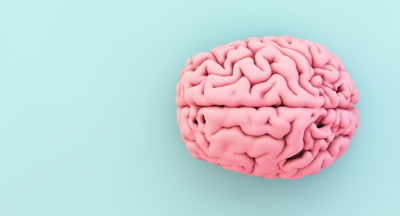
Mind Over Matter: Six Actionable Approaches to Battle Cognitive Decline
As we age, our cognitive abilities naturally begin to decline. This can include changes in memory, attention, and processing speed, among other cognitive functions. While some degree of cognitive decline is a normal part of aging, more significant declines can impact daily life and may be a sign of an underlying condition, such as Alzheimer’s disease or dementia. Fortunately, there are several effective treatments available that can help seniors maintain or improve their cognitive function.
What is Cognitive Skill Building?
Cognitive skill building is a treatment option that involves engaging in exercises and activities designed to stimulate the brain and enhance cognitive function. This can include puzzles, memory games, and other mentally challenging activities. Cognitive skill building is effective because it can help seniors strengthen neural connections in the brain, which can improve cognitive function.
How Can Neurofeedback Help With Cognitive Skills?
Neurofeedback is a treatment option that uses advanced technology to monitor brain activity and provide real-time feedback to the patient. This feedback can help patients learn to regulate their brainwaves, which can improve cognitive function. Neurofeedback has been shown to be effective in treating a variety of cognitive conditions, including attention deficit hyperactivity disorder (ADHD), anxiety, and depression.
How Does Working Memory Training Improve Cognitive Decline?
Working memory training is a type of cognitive training that focuses specifically on improving working memory, which is the ability to hold and manipulate information in the mind over short periods. This treatment option has been shown to improve cognitive function in seniors and can be especially helpful for those experiencing memory decline. Working memory training involves engaging in a variety of exercises and activities that challenge the brain and help strengthen working memory capacity.
Physical Exercise & Its Impact on Cognitive Decline
Physical exercise is an excellent way to improve cognitive function in seniors. Exercise has been shown to increase blood flow to the brain, which can improve neural function and enhance cognitive performance. Additionally, exercise has been shown to improve mood and reduce symptoms of depression and anxiety, which can also improve cognitive function.
Nutrition & Cognitive Decline
Nutrition can also play a significant role in maintaining cognitive function in seniors. A diet rich in fruits, vegetables, healthy fats, and lean protein can help provide the necessary nutrients to support brain health. Additionally, certain supplements, such as omega-3 fatty acids and vitamin D, have been shown to improve cognitive function in seniors.
Social Engagement
Social engagement is another important factor in maintaining cognitive function in seniors. Social activities, such as volunteering, attending social events, and spending time with friends and family, can help keep the mind active and engaged. Additionally, social engagement can help reduce feelings of isolation and loneliness, which can have a negative impact on cognitive function.
If you or a loved one is experiencing cognitive decline, we invite you to contact us today to schedule a consultation. We will work with you to develop a personalized treatment plan that meets your specific needs and helps you achieve your cognitive goals. At Cognitive Solutions L.C., we are committed to helping seniors maintain their cognitive abilities and enjoy a high quality of life.
Related Posts
How Do Executive Functioning Problems Affect Adults?
In the grand tapestry of life, two essential domains often stand out: our careers...
Exploring the Differences Between Neuropsychological Testing vs. Quantitative Electroencephalogram (qEEG) Testing
Joy Malanyaon began experiencing severe headaches beginning December 2016....
How Neurofeedback Treats Traumatic Brain Injury, Anxiety, Depression, And More
Imagine if you and your therapist could actually see what your mental illness...
Neurofeedback for ADHD
Neurofeedback: A Form of Biofeedback Neurofeedback is known by several names,...





